Regulation of International Financial Markets and International Banking
The research group ‘Regulation of International Financial Markets and International Banking’ analyses international capital flows as well as the consequences of regulatory changes for financial stability and intermediation. Both aspects can facilitate an efficient allocation of capital and enable risk sharing, but spark at the same time global financial instabilities. Banking regulation and supervision has accordingly changed significantly over recent years, but the impact of these comprehensive reforms on the functionality of the financial system remain unclear. In addition banks face further challenges, such as tightening monetary policy, geopolitical risks, and the emergence of new competitors due to digitalization.
Against this backdrop, the research group contributes to the literature in three ways. First, the group empirically analyses international capital flow determinants and the implications for financial stability and credit allocation. Periods characterised by a high degree of financial integration are often followed by financial crises, causing negative spill-overs to the real economy. This work package seeks to advance our understanding of how to maintain a stable banking system that is able to efficiently channel financial resources to firms and households alike.
Second, the group analyses the impact of changes in banking supervision and regulation on (inter)national activities of banks with a specific focus on the European integration process. The establishment of the European Banking Union constantly shapes the banking sector as prudential and regulatory responsibilities are transferred from the national to the Euro area level. Integrated markets allow for an early detection of soaring risks at an early stage, but new regulations can also create distortions. This work package contributes to the scant empirical evidence on this trade-off.
Third, “traditional” banks are not only operating in a tighter regulatory framework, they also face plenty of challenges threatening their business model and longer-term profitability. For example, increasing interest rates sparked deposit withdrawals and valuation losses of banks’ fixed income investment. Distortions due to the realization of political risks and rising levels of public, private, and corporate debt might bear the risk of future non-performing loans. The emergence of non-bank financial intermediaries (FinTech) challenge current business models of banks. The consequences for banks or their new competitors should be monitored.
Workpackage 1: The Shape of International Financial Markets
Workpackage 2: Evaluation of Regulatory Policies in Integrated Markets
Workpackage 3: Financial Intermediation in a Changing World
IWH Data Project: International Banking Library
The International Banking Library is a web-based platform for the exchange of research on cross-border banking. It provides access to data sources, academic research, both theoretical and empirical, on cross-border banking, as well as information on regulatory initiatives. The International Banking Library addresses researchers, policymakers, and students of international banking and economics in search of comprehensive information on international banking issues.
The contents of the International Banking Library are summarised and distributed in a quarterly newsletter, thereby adding to the international visibility of the IWH (with more than 700 subscribers from academia, central banks and the industry) and facilitating a regular exchange of our research ideas with policy makers.
IWH Data Project: Financial Markets Directives Database
In Europe, financial markets have undergone significant regulatory changes since the last financial and sovereign debt crisis. One key element is the harmonisation of rules for capital regulation, bank resolution and deposit insurance. In the euro area, the sizable change in the regulatory framework is also reflected by the establishment of the European Banking Union.
Another change that might have implications for financial structure is the establishment of a Capital Market Union. Evidence-based policymaking and the evaluation of (un-)intended consequences of such reforms needs information on when regulatory changes happen. In the European Union, the cornerstones of regulatory changes that apply to all member states are implemented by means of regulations or directives. The latter ones have to be implemented, with some scope for discretion, into national law by the member states. The Financial Markets Directives Database assembles the dates at which countries have published the key legal document related to several recent directives affecting financial markets.
The cornerstone of the database constitutes information on the European Banking Union including its three directives on capital requirements, bank resolution and deposit insurance (CRD IV, BRRD, DGSD). The database has been made publically available via the website “International Banking Library” and is part of the Centre for Evidence-based Policy Advice (IWH-CEP).
Research Cluster
Economic Dynamics and StabilityYour contact

- Department Financial Markets
EXTERNAL FUNDING
07.2017 ‐ 12.2022
The Political Economy of the European Banking Union
Causes of national differences in the implementation of the Banking Union and the resulting impact on financial stability.
01.2015 ‐ 12.2017
Dynamic Interactions between Banks and the Real Economy
Refereed Publications
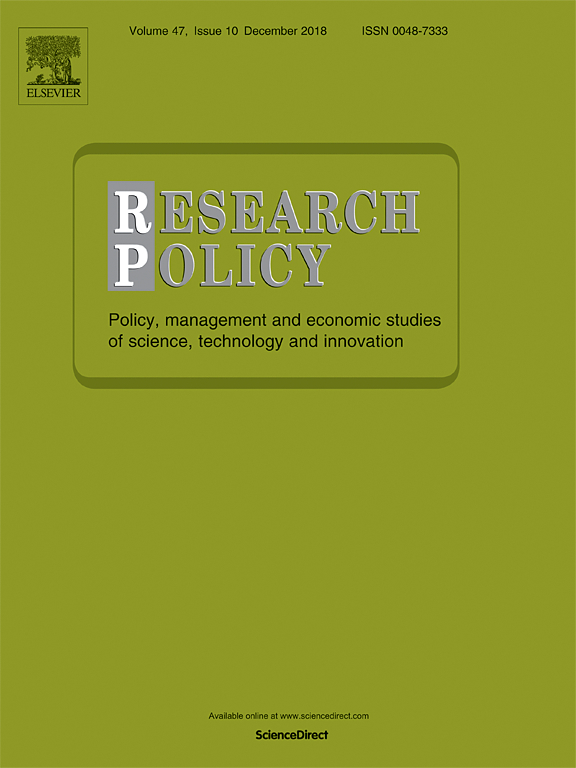
Does Gender Affect Innovation? Evidence from Female Chief Technology Officers
in: Research Policy, No. 9, 2021
Abstract
In this paper, we examine the impact of female Chief Technology Officers (CTOs) on corporate innovation. We find that firms with female CTOs are more innovative (as captured by both patent counts and patent citations) than firms with male CTOs. This effect is more pronounced for firms with a stronger innovation-supportive culture, firms with female CEOs, and when female CTOs are more powerful. Using mediation analyses, we further validate that female CTOs’ transformational leadership style is a plausible mechanism through which they affect innovation positively.
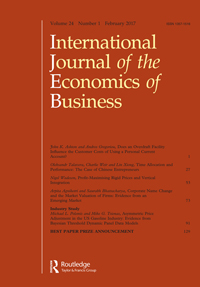
Quid Pro Quo? Political Ties and Sovereign Borrowing
in: Journal of International Economics, November 2021
Abstract
Do stronger political ties with a global superpower improve sovereign borrowing conditions? We use data on voting at the United Nations General Assembly along with foreign aid flows to construct an index of political ties and find evidence that suggests stronger political ties with the US is associated with both better sovereign credit ratings and lower yields on sovereign bonds especially among lower income countries. We use official heads-of-state visits to the White House and coalition forces troop contributions as additional measures of the strength of political ties to further reinforce our findings.

Financing Choice and Local Economic Growth: Evidence from Brazil
in: Journal of Economic Growth, No. 3, 2021
Abstract
We study how financing non-traditional local activities, conceived here as a proxy for activity diversification, is associated with economic growth. We use municipality-level data from Brazil, a country with large geographical, social, and economic disparities observed across its more than 5500 municipalities. We find that finance to non-traditional local activities associates with higher municipal economic growth, suggesting a positive externality between the non-traditional and traditional sectors. Using large natural disasters in Brazil as sources of unexpected negative events, we find that this association between financing non-traditional local activities and economic growth becomes negative in times of distress. We find that traditional local sectors are more affected than non-traditional sectors following a natural disaster. Precisely because of the non-traditional sector’s dependence on the traditional sector, our results suggest that municipalities should restrengthen their traditional activities during adverse conditions.

The Impact of Risk-based Capital Rules for International Lending on Income Inequality: Global Evidence
in: Economic Modelling, May 2021
Abstract
This paper investigates the impact of international bank flows from G10 lender countries on income inequality in 74 borrower countries over 1999–2013. Specifically, we examine the role of international bank flows contingent upon the Basel 2 capital regulation and the level of financial market development in the borrower countries. First, we find that improvements in the borrower country risk weights due to rating upgrades under the Basel 2 framework significantly increase bank flows, leading to improvements in income inequality. Second, we find that the level of financial market development is also important. We report that a well-functioning financial market helps the poor access credit and thereby reduces inequality. Moreover, we employ threshold estimations to identify the thresholds for each of the financial development measures that borrower countries need to reach before realizing the potential reductions in income inequality from international bank financing.
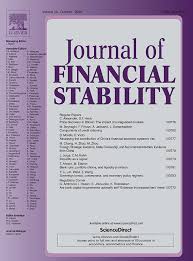
Consumer Defaults and Social Capital
in: Journal of Financial Stability, April 2021
Abstract
Using account level data from a credit bureau, we study the role that social capital plays in consumer default decisions. We find that borrowers in communities with greater social capital are significantly less likely to default on loans, even after adjusting for different levels of income and other characteristics such as credit scores. The results are strongest for potentially strategic defaults on mortgages; a one standard deviation increase in social capital reduces such defaults by 12.4 %. These results can be generalized to any mortgage default. Our results also indicate that the effect of social capital is most prominent among more creditworthy borrowers, suggesting that when given a choice, the social cost of defaulting is an important factor affecting default decisions. We find a similar impact of social capital on consumer defaults in other datasets with more detailed information on borrowers as well. Our results are robust to modeling and methodology choices, as well as controlling for other drivers of default such as wealth, income and amenities from homeownership. Our results suggest that increasing social capital via measures to build community cohesion such as promotion of owner-occupied home ownership may be one avenue to deter consumer default.
Working Papers
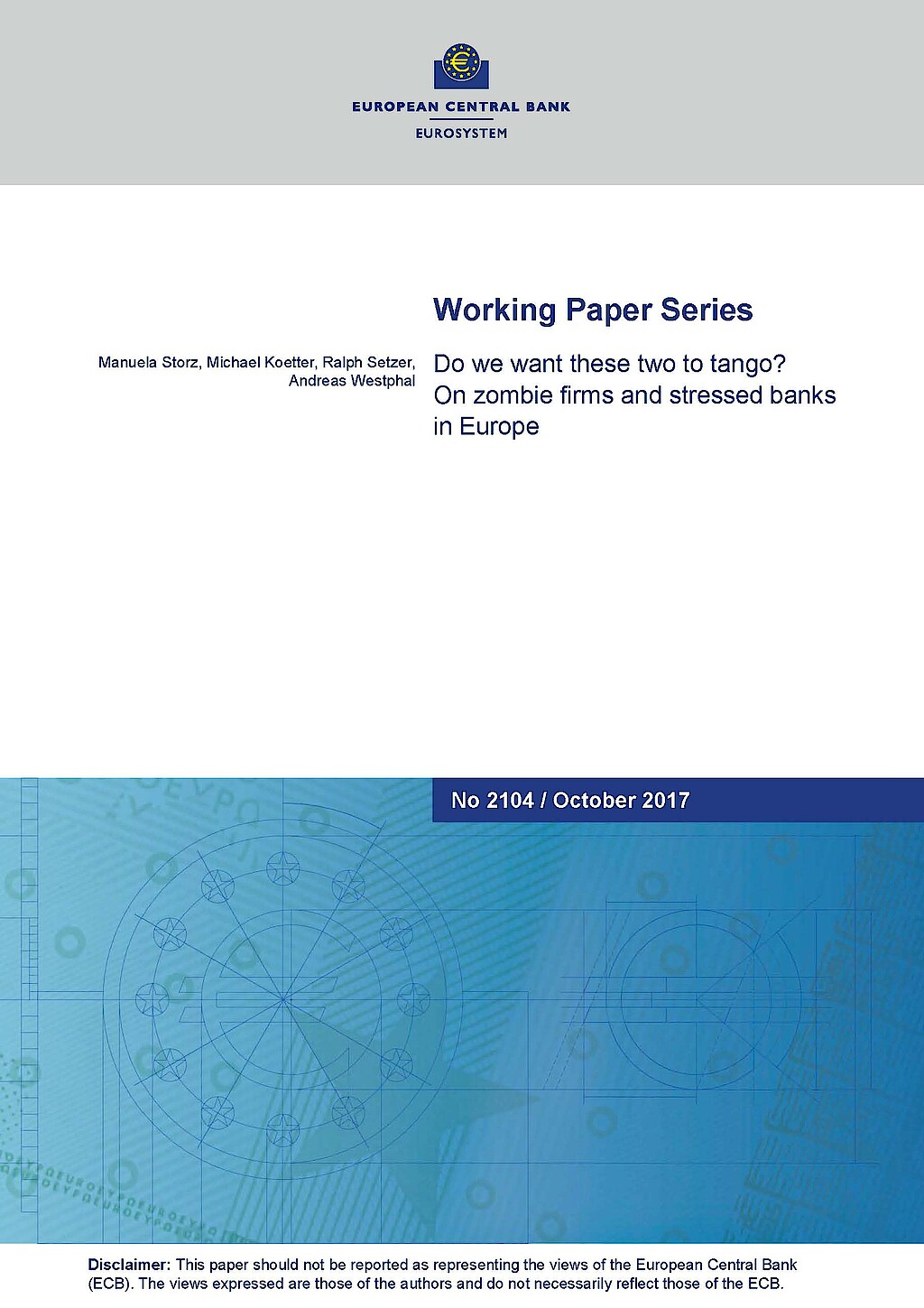
Do We Want These Two to Tango? On Zombie Firms and Stressed Banks in Europe
in: ECB Working Paper, 2017
Abstract
We show that the speed and type of corporate deleveraging depends on the interaction between corporate and financial sector health. Based on granular bank-firm data pertaining to small and medium-sized enterprises (SME) from five stressed and two non-stressed euro area economies, we show that “zombie” firms generally continued to lever up during the 2010–2014 period. Whereas relationships with stressed banks reduce SME leverage on average, we also show that zombie firms that are tied to weak banks in euro area periphery countries increase their indebtedness even further. Sustainable economic recovery therefore requires both: deleveraging of banks and firms.
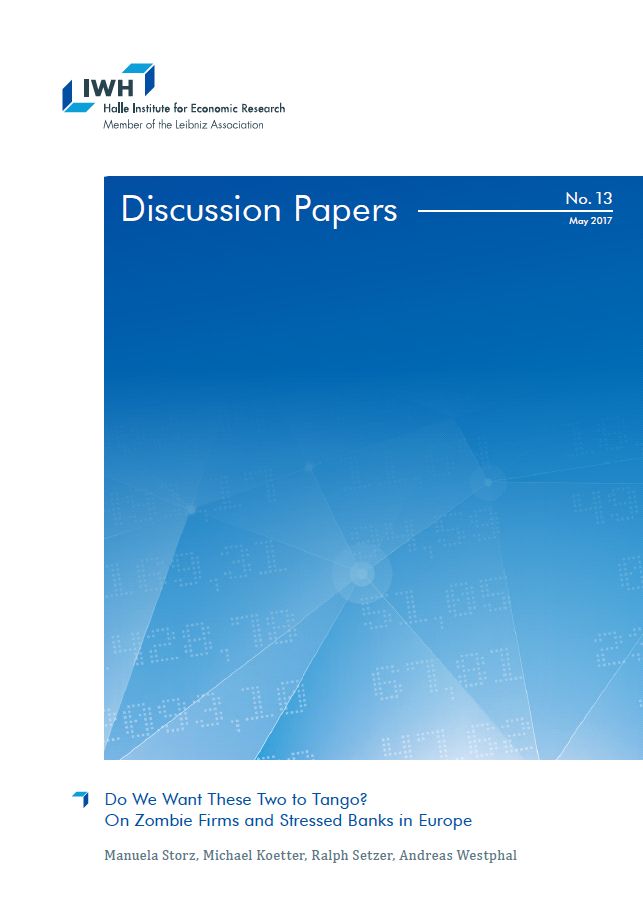
Do We Want These Two to Tango? On Zombie Firms and Stressed Banks in Europe
in: IWH Discussion Papers, No. 13, 2017
Abstract
We show that the speed and type of corporate deleveraging depends on the interaction between corporate and financial sector health. Based on granular bank-firm data pertaining to small and medium-sized enterprises (SME) from five stressed and two non-stressed euro area economies, we show that “zombie” firms generally continued to lever up during the 2010–2014 period. Whereas relationships with stressed banks reduce SME leverage on average, we also show that zombie firms that are tied to weak banks in euro area periphery countries increase their indebtedness even further. Sustainable economic recovery therefore requires both: deleveraging of banks and firms.

Inside Asset Purchase Programs: The Effects of Unconventional Policy on Banking Competition
in: ECB Working Paper Series, No. 2017, 2017
Abstract
We test if unconventional monetary policy instruments influence the competitive conduct of banks. Between q2:2010 and q1:2012, the ECB absorbed Euro 218 billion worth of government securities from five EMU countries under the Securities Markets Programme (SMP). Using detailed security holdings data at the bank level, we show that banks exposed to this unexpected (loose) policy shock mildly gained local loan and deposit market shares. Shifts in market shares are driven by banks that increased SMP security holdings during the lifetime of the program and that hold the largest relative SMP portfolio shares. Holding other securities from periphery countries that were not part of the SMP amplifies the positive market share responses. Monopolistic rents approximated by Lerner indices are lower for SMP banks, suggesting a role of the SMP to re-distribute market power differentially, but not necessarily banking profits.
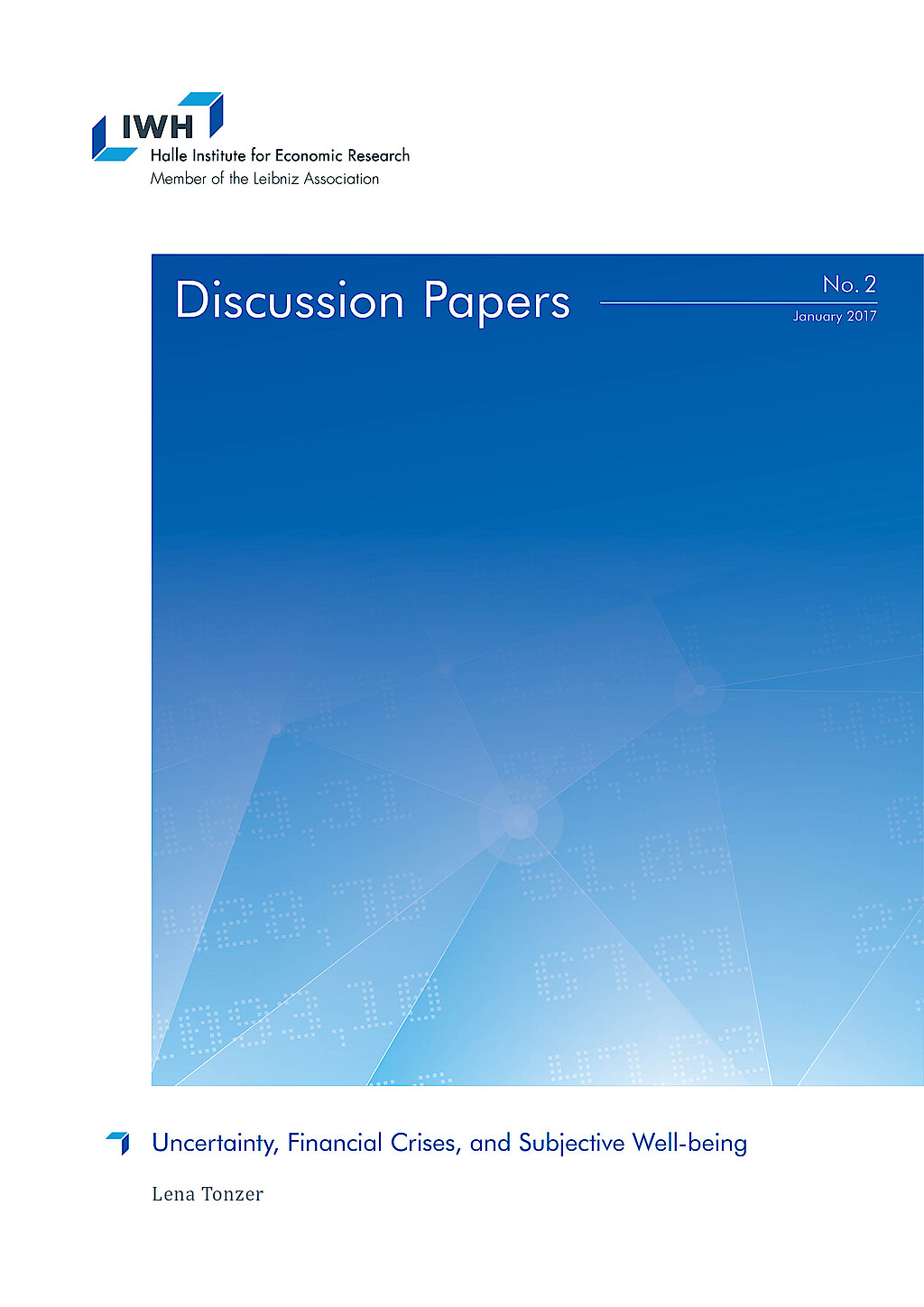
Uncertainty, Financial Crises, and Subjective Well-being
in: IWH Discussion Papers, No. 2, 2017
Abstract
This paper focuses on the effect of uncertainty as reflected by financial market variables on subjective well-being. The analysis is based on Eurobarometer surveys, covering 20 countries over the period from 2000 to 2013. Individuals report lower levels of life satisfaction in times of higher uncertainty approximated by stock market volatility. This effect is heterogeneous across respondents: The probability of being unsatisfied is higher for respondents who are older, less educated, and live in one of the GIIPS countries of the euro area. Furthermore, higher uncertainty in combination with a financial crisis increases the probability of reporting low values of life satisfaction.

To Separate or not to Separate Investment from Commercial Banking? An Empirical Analysis of Attention Distortion under Multiple Tasks
in: IWH Discussion Papers, No. 2, 2016
Abstract
In the wake of the 2008/2009 financial crisis, a number of policy reports (Vickers, Liikanen, Volcker) proposed to separate investment banking from commercial banking to increase financial stability. This paper empirically examines one theoretical justification for these proposals, namely attention distortion under multiple tasks as in Holmstrom and Milgrom (1991). Universal banks can be viewed as combining two different tasks (investment banking and commercial banking) in the same organization. We estimate pay-performance sensitivities for different segments within universal banks and for pure investment and commercial banks. We show that the pay-performance sensitivity is higher in investment banking than in commercial banking, no matter whether it is organized as part of a universal bank or in a separate institution. Next, the paper shows that relative pay-performance sensitivities of investment and commercial banking are negatively related to the quality of the loan portfolio in universal banks. Depending on the specification, we obtain a reduction in problem loans when investment banking is removed from commercial banks of up to 12 percent. We interpret the evidence to imply that the higher pay-performance sensitivity in investment banking directs the attention of managers away from commercial banking within universal banks, consistent with Holmstrom and Milgrom (1991). Separation of investment banking and commercial banking may indeed be associated with a reduction in risk in commercial banking.
















